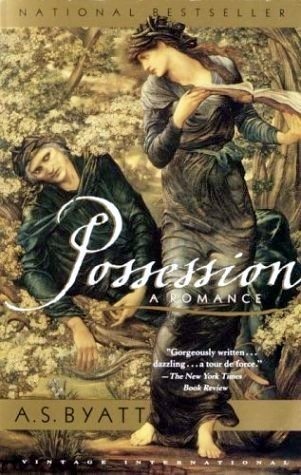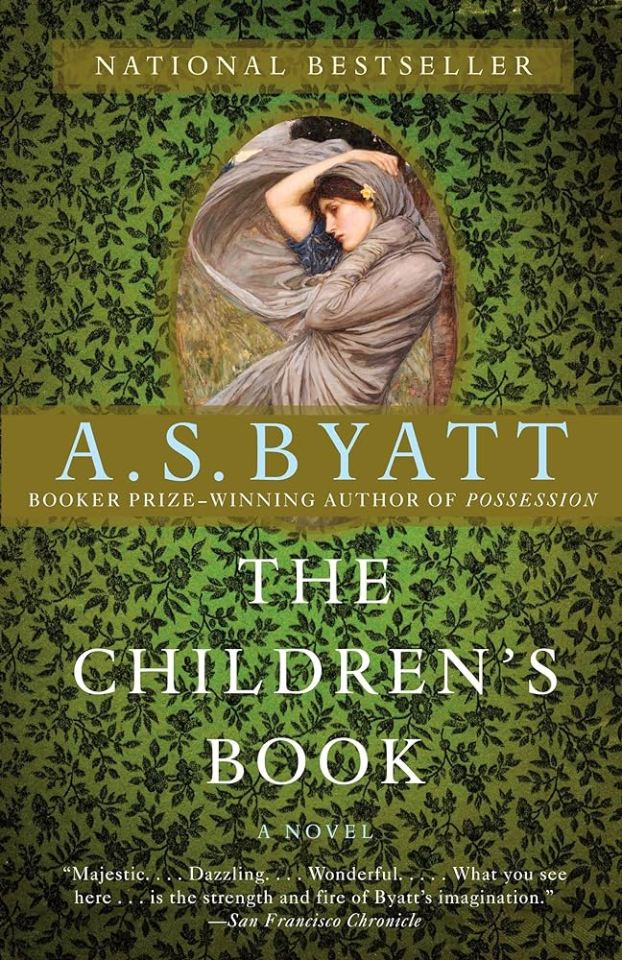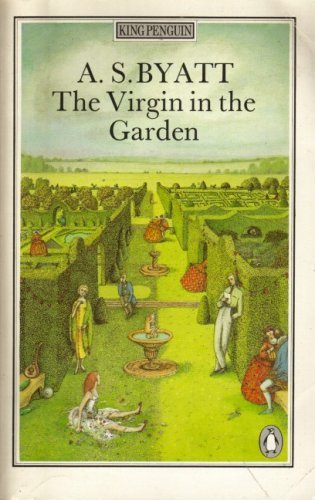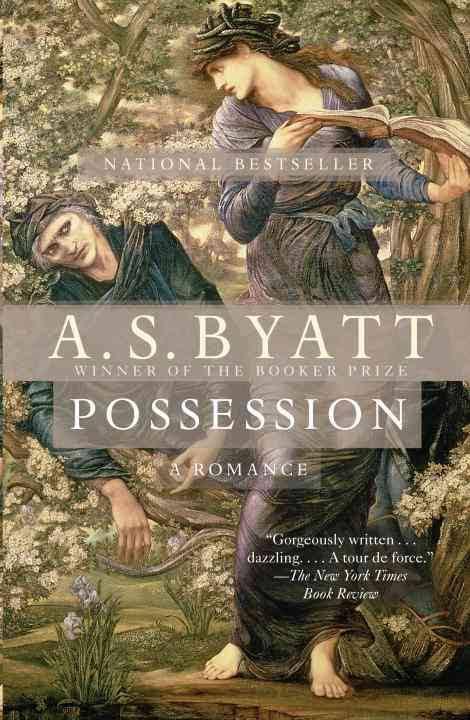#a. s. byatt
Text
I am not at all safe, with you. But I have no desire to be elsewhere.
A. S. Byatt, from ‘Possession’
494 notes
·
View notes
Text




A.S. Byatt | 24 August 1936 - 16 November 2023
"An odd phrase, 'by heart,' he would add, as though poems were stored in the bloodstream." (Possession, 1990)
"Everybody needs, as it were, an unreal world to complete the real world." (Interview)
#a. s. byatt#rest in peace😢#books#one of my favorite all time authors#read possession again this year and it was still incredible
56 notes
·
View notes
Text

– Sei al sicuro con me.
– Non sono affatto al sicuro, con te. Ma non ho alcun desiderio di essere altrove.
-A.S.Byatt
21 notes
·
View notes
Text
The writer and critic AS Byatt, who explored family, myth and narrative in a career spanning six decades, has died aged 87. Her publisher Chatto & Windus confirmed that she died peacefully at home surrounded by close family.
Dame Antonia Susan Duffy, who wrote under the name AS Byatt, authored complex and critically acclaimed novels, including the Booker prize-winning Possession and her examination of artistic creation, The Children’s Book. Over her career, she won a swathe of literary awards, from the Booker to a Chevalier of France’s Order of Arts and Letters.
“We mourn her loss but it’s a comfort to know that her penetrating works will dazzle, shine and refract in the minds of readers for generations to come,” said her publisher Clara Farmer.
29 notes
·
View notes
Note
Any thoughts on Byatt, on the occasion of her passing?
I read Possession one summer when I was in college and thought it was extraordinary. (Intimidatingly so, which may be why I never read another of her novels, though Possession is generally said to be her best.) I need to read it again. I can't believe it never came back into fashion with the dark academia trend. Maybe it's too brainy, or maybe it's that the (mostly) heterosexual romance lacks yaoi potential à la Dorian Gray, Maurice, and Brideshead Revisited. For anyone unfamiliar, Possession is about two late-20th-century British academics investigating the lives of two fictional Victorian poets (one loosely based on Robert Browning, the other on Christina Rossetti), and both pairs' possible love affairs with one another. Byatt narrates in a sprightly comic style with no little lyric potential, derived, I now see, from her great models George Eliot and Iris Murdoch, but she also parodies every other kind of relevant style with Joycean or Nabokovian aplomb, giving us jargony feminist essays, image-jeweled Victorian fairy tales, fulsome 19th-century correspondence, jagged Browningesque dramatic monologues, dreamy Pre-Raphaelite ballads, and more. The climatic vindication of writing and reading as almost prophetic activities, this against the reductively ideological approach of the Theory era Byatt was writing within and against, should be carved above the lintel of whatever English departments remain:
There are readings—of the same text—that are dutiful, readings that map and dissect, readings that hear a rustling of unheard sounds, that count grey little pronouns for pleasure or instruction and for a time do not hear golden or apples. There are personal readings, which snatch for personal meanings, I am full of love, or disgust, or fear, I scan for love, or disgust, or fear. There are—believe it—impersonal readings—where the mind's eye sees the lines move onwards and the mind's ear hears them sing and sing.
Now and then there are readings that make the hairs on the neck, the non-existent pelt, stand on end and tremble, when every word burns and shines hard and clear and infinite and exact, like stones of fire, like points of stars in the dark—readings when the knowledge that we shall know the writing differently or better or satisfactorily, runs ahead of any capacity to say what we know, or how. In these readings, a sense that the text has appeared to be wholly new, never before seen, is followed, almost immediately, by the sense that it was always there, that we the readers, knew it was always there, and have always known it was as it was, though we have now for the first time recognised, become fully cognisant of, our knowledge.
I was pleased to see a long story by Byatt, "The Thing in the Forest," in the Norton Introduction to Literature, which I used the one time I taught the class of that name, in the ill-fated spring semester of 2020. If you've never read Byatt, this story or novelette is a good place to start. It does a lot of what Possession does in miniature, synthesizing witty metafiction, aestheticized fantasy, and moving historical reality into a work of the latter-day Romantic imagination.
I also want to recommend Imagining Characters, an under-discussed book of conversations between Byatt and the Brazilian psychoanalyst Ignês Sodré about six novels: Mansfield Park, Villette, Daniel Deronda, The Professor's House, An Unofficial Rose, and Beloved. (I've still never read that Murdoch, I confess.) This book is probably why I think of Mansfield Park, Villette, and Daniel Deronda as forming a loose trilogy of 19th-century "problem novels" (like Shakespeare's "problem plays") that challenge any cheap 20th-century talk about the complacency, sentimentalism, meliorism, or all-around naiveté of "bourgeois realism." Plus Sodré and Byatt are superb readers, and it's a pleasure to "listen" to them in conversation.
The Paris Review unpaywalled their interview with Byatt today. I'd never read it before. She says much of interest; she even criticizes Kazuo Ishiguro in the same terms as I have, for writing international literature by subtracting specificity, though she later praises The Unconsoled for its insight into the psychology of the artist. She seems ambivalent about realism, constantly invoking fairy tales, even saying this about Murdoch—
I think Iris learned a great deal from the French surrealists, and then somehow went and sat in Oxford and became a slightly less interesting novelist than she would have been if she had stayed in contact with the world of Beckett and Queneau—she would never have gone into Sarraute-like writings. I think she developed a theory about the virtues of Jane Austen that wasn’t all that good for her.
—and this about herself:
If you asked me what I wish I’d written, I would say Borges’s “Pierre Menard, Author of the Quixote.” That is a completely pointless postmodernist structure of total beauty that nevertheless has a profound point.
The interviewer notes her nonconformist heritage, what links her to George Eliot as well as to Lawrence and to Leavis. She acknowledges it, but notes as well another way, even within the deep English Protestant imagination:
There’s a Spenserian aspect of Milton that I love. It’s the exotic. It’s the extraordinary metaphors. It’s the luscious sensuousness of him. It isn’t the stern puritan. I think I made something of Spenser that was the presence of stories about unreal things in a serious, real world.
"The Last Spenserian." There are worse epitaphs. Now I just need to read more of her novels.
20 notes
·
View notes
Text
A. S. Byatt, one of my favorite authors has died. This is my favorite interview of her, with the delightful John Mullan of University College London.
9 notes
·
View notes
Text
“The event of reading, like the event of loving, is singular. Just as our love for another creates a new reality as it unfolds, each reading of a particular text makes us lovers without precedent. Reading creates in us new ways of loving, and thus new ways of being. Or it can. In order for a book to work on us this way, we have to open ourselves up to an intentionality and signifying practice that originates outside of our own “egological sphere.” Because we cannot anticipate the way we will be changed by an event of reading, we commit ourselves first to the act of surrender itself and, through that surrender of our own intentionality, find ourselves remade.”
Cassandra Falke, The Phenomenology of Love & Reading
“I discovered that reading has to be a loving event, an act of beauty because it has to do with the reader rewriting the text.”
Paulo Freire, Reading the World and Reading the Word: An Interview with Paulo Freire
“The work is a work only when it becomes the intimacy shared by someone who writes it and someone who reads it, a space violently opened up by the contest between the power to speak and the power to hear.”
Maurice Blanchot, The Space of Literature
“Think of this- that the writer wrote alone, and the reader read alone, and they were alone with each other.”
A. S. Byatt, Possession
40 notes
·
View notes
Text
And her eyes were green, glass-green, malachite green, the cloudy green of seawater perturbed and carrying a weight of sand.
A.S. Byatt, from Possession (Chatto & Windus 1990)

8 notes
·
View notes
Text
[…] full of obscure emotion, they had rushed into each other’s arms.
A. S. Byatt, from ‘Possession’
349 notes
·
View notes
Text
“…may we not steal some — I almost wrote small, but it will never be that — some great happiness? We must come to grief and regret anyway, and I for one would rather regret the reality than its phantasm, knowledge than hope, the deed than the hesitation, true life and not mere sickly potentialities.”
— Possession, by A. S. Byatt
7 notes
·
View notes
Text

..Ma il cuore è sul punto d’esplodere
La mente scricchiola nel silenzio compatto
E le finestre s’involano dalle stanze mute
E i muri crollano – tutti insieme –
-Christabel LaMotte
5 notes
·
View notes
Text
AS Byatt passed away this week after a long, fruitful life and I am having some feelings about it.
Babel Tower was the first of her books that I read, in my early 20s, and it turned out to be the third in a series about a woman named Frederica. She’s annoying and smart and won’t stop reading and she’s recovering from a bad marriage. I identified with her. I liked the book enough that I went and read the first, and then the second.
But here’s the thing: towards the end of the second book, one of the characters dies in a dumb accident because a kitchen appliance isn’t properly grounded. And I knew it was coming because I’d already read the third one.
About 30-ish pages before it happened, in the real world, my mom was killed in a car accident.
It took a little while to get back to reading - I wasn’t sure how it was going to work, if I was going to be able to handle it. I was already crying all the time and always angry and doing many, many stupid things.
The scene where the character dies, and the aftermath of her death - in particular the spouse who can’t deal and a couple of months afterwards leaves their kids with their grandparents while they just go - it was exactly what I needed.
And then I just took it from there. I’d finish one of her books and go over to Borders (rip Borders!) and get another one. That’s how I found Possession, probably her most popular work and the one that spurred a million people to study Victorian literature. And they all helped me during a hard time.
Anyway. More people should read her work. It’s very good, and the world is a little bit sadder without her in it.
Pour one out for her.
3 notes
·
View notes
Text
Book 70, 2023
I fell in love with A.S. Byatt in high school, reading her novel "Possession", and devoured what I could find of her works in my local library thereafter, which I recall being entirely short story collections. I genuinely cannot remember, however, if "Elements: Stories of Fire and Ice" was one of them. I have distinct memories of one of the stories -- a fairytale about an ice princess -- but none of the others seem familiar. Byatt's short story collections are hardly voluminous, so it seems unlikely that she would have the same story in multiple books. It may be more likely that on reading the stories in high school, the one that struck me most vividly was the fairytale one, while the other stories -- about impulsive actions taken in the face of grief, about choosing the artistic life over the social life and where inspiration is found, about art and devotion, about how suddenly someone outside the group norm can fall even further from society -- spoke to me less as a teenager than they do at 39.
I appreciated everything this time around, although Byatt is the sort of author who rewards rereading, informed by Byatt the writer, Byatt the critic, and Byatt the appreciator of art. There's a richness to her stories, a painterly quality, like works in oil or acrylic, texture to the brain.
I heard a guest on a podcast recently expressing frustration in the book they were discussing because of how so much of the book felt like flourishes, things being built that never 'paid off' in terms of the plot and nothing reminds me more thoroughly of the importance of reading outside of genre fiction, of ignoring a marketing publisher push to view prose in terms of its compatibility with screenplays, than luxuriating in one of Byatt's short stories.
There's so many ways to appreciate books and it's awesome when you unlock that.
2 notes
·
View notes
Quote
The clock ticked, motes of dust danced in sunlight, Roland meditated on the tiresome and bewitching endlessness of the quest for knowledge.
— Possession (A. S. Byatt)
#book quotes#romance fiction#a. s. byatt#possession (a. s. byatt)#academia#learning#studying#knowledge#obsession#frustration
5 notes
·
View notes
Text
THREE THOUSAND YEARS OF LONGING:
Scholar and a Djinn
Tell tales of wishes gone wrong
What is it they need?
youtube
#three thousand years of longing#random richards#poem#haiku#poetry#haiku poem#poets on tumblr#haiku poetry#haiku form#poetic#haiku on tumblr#tilda swinton#idris elba#erdil Yasaroglu#sabrina dhowre elba#george miller#Augusta gore#a. s. byatt#The Djinn in the Nightingale’s Eye#Youtube
5 notes
·
View notes